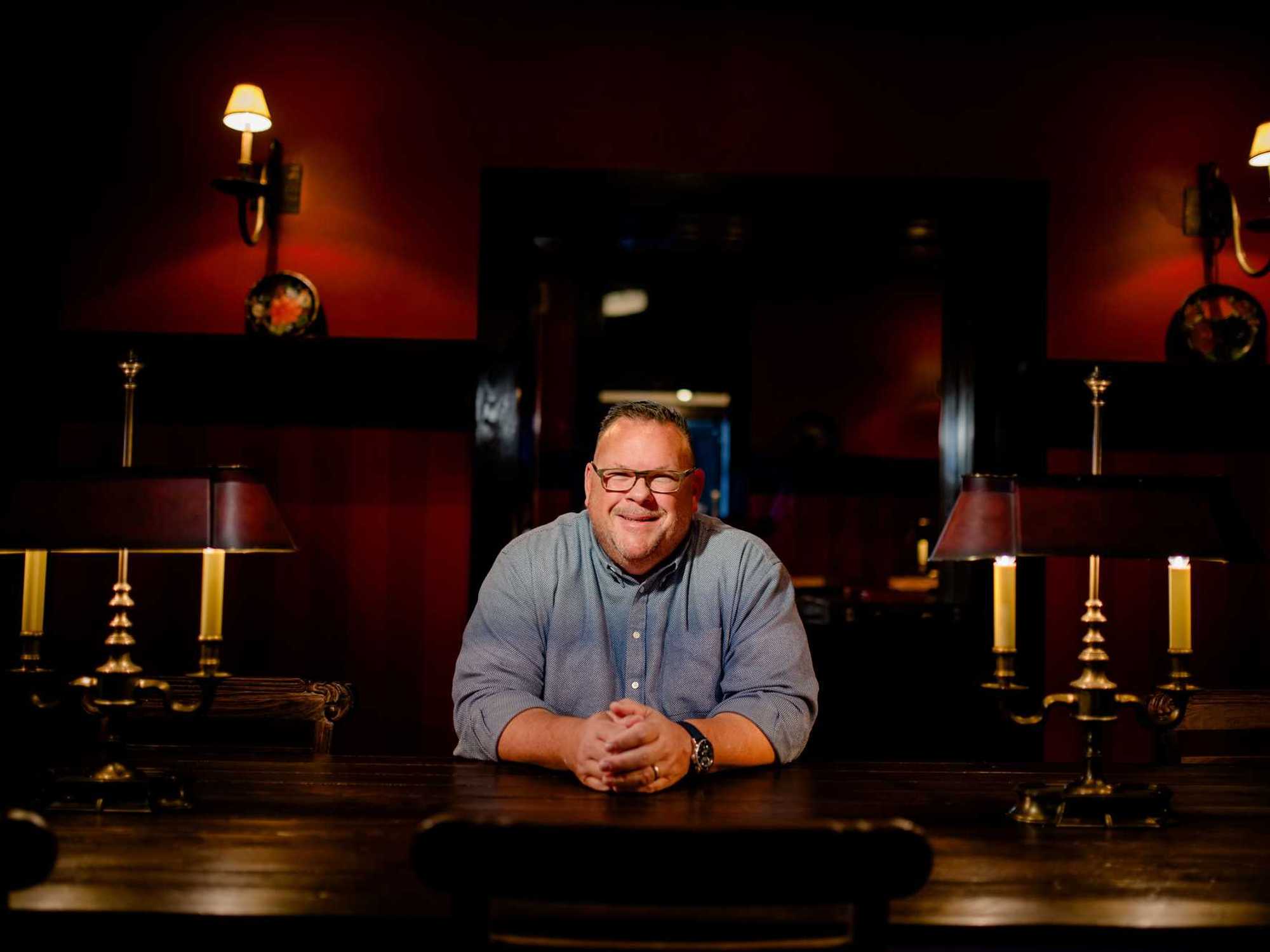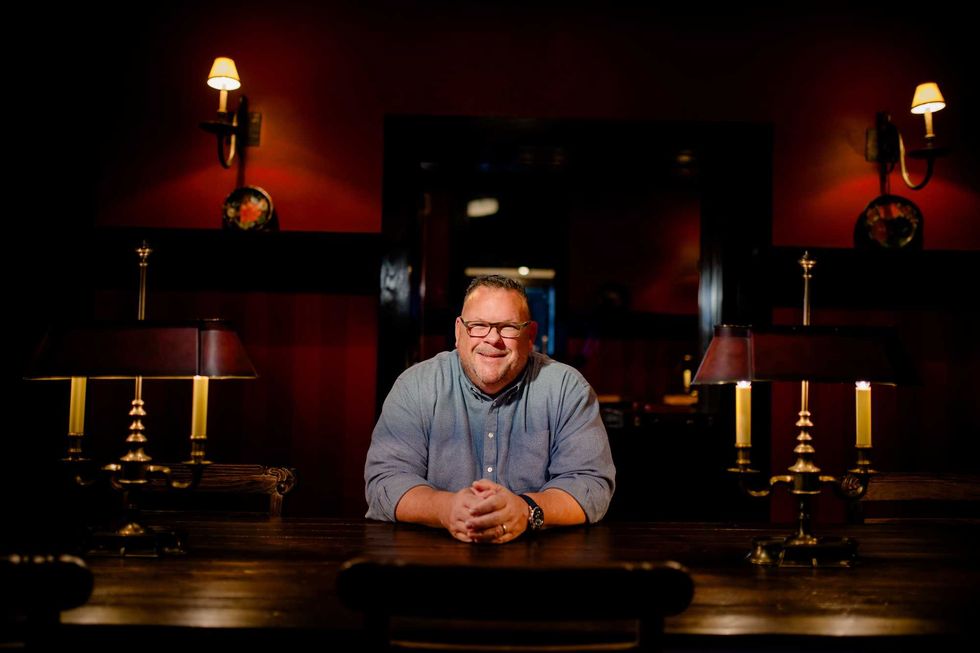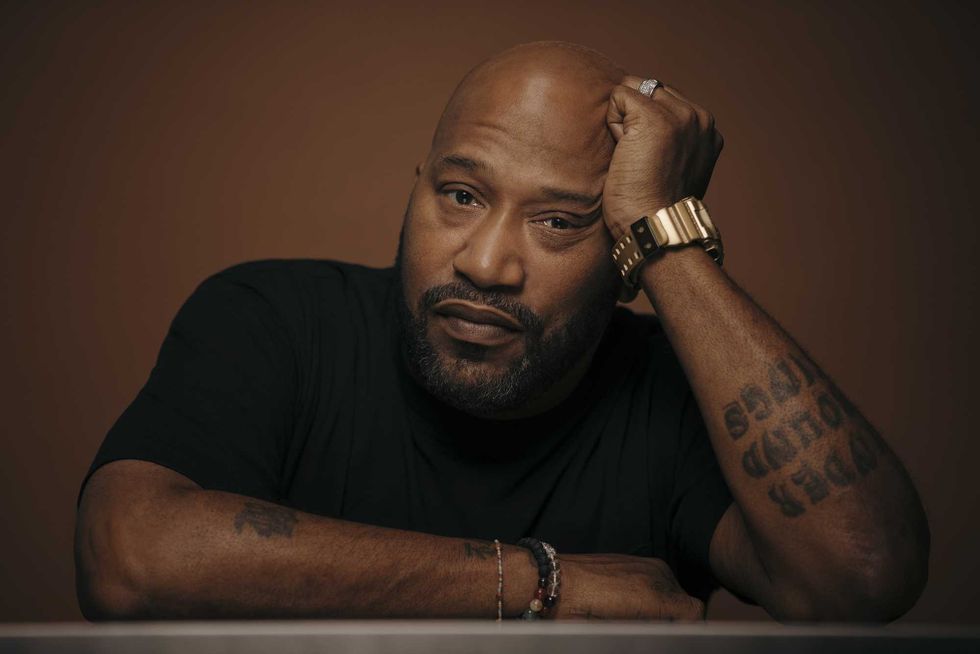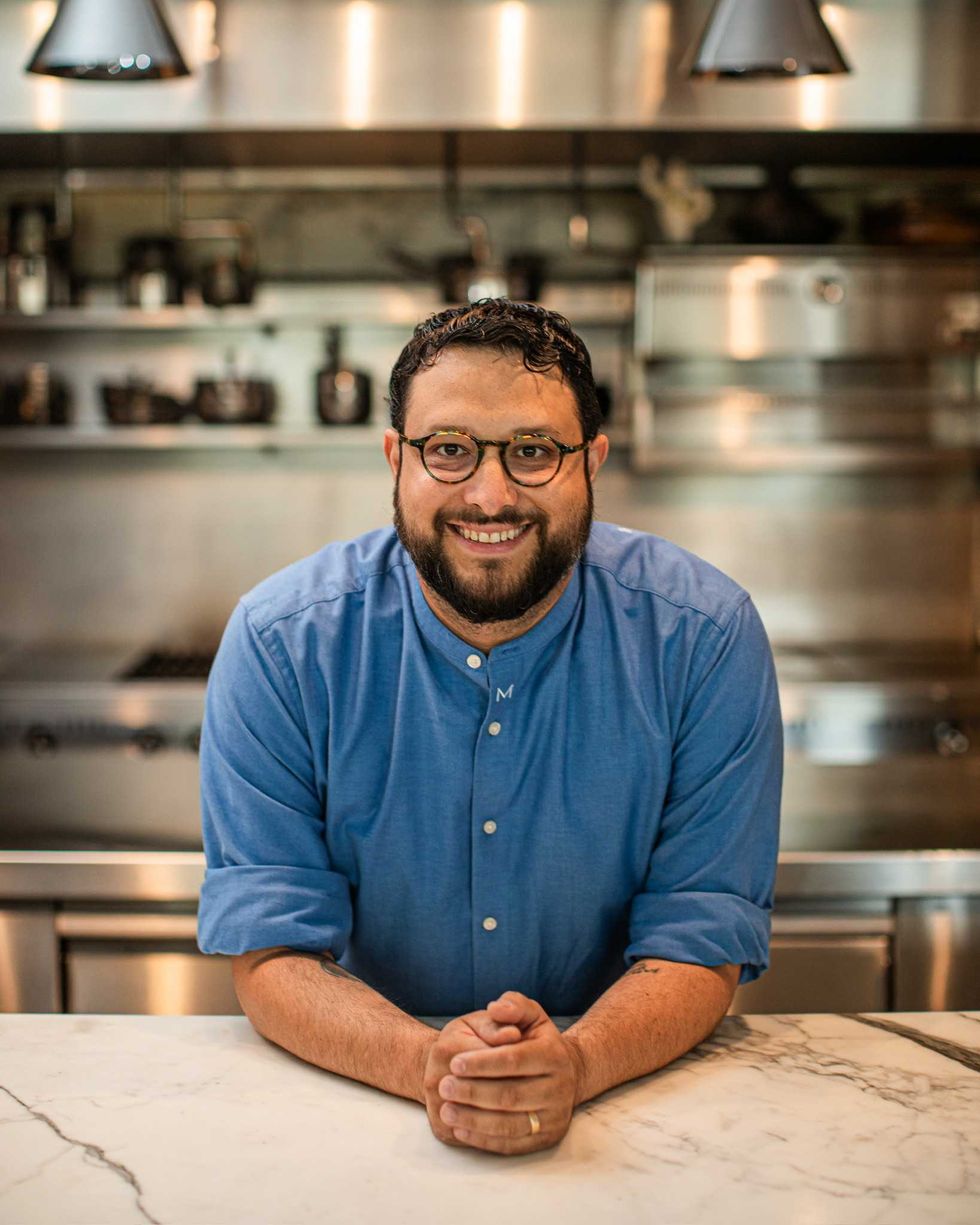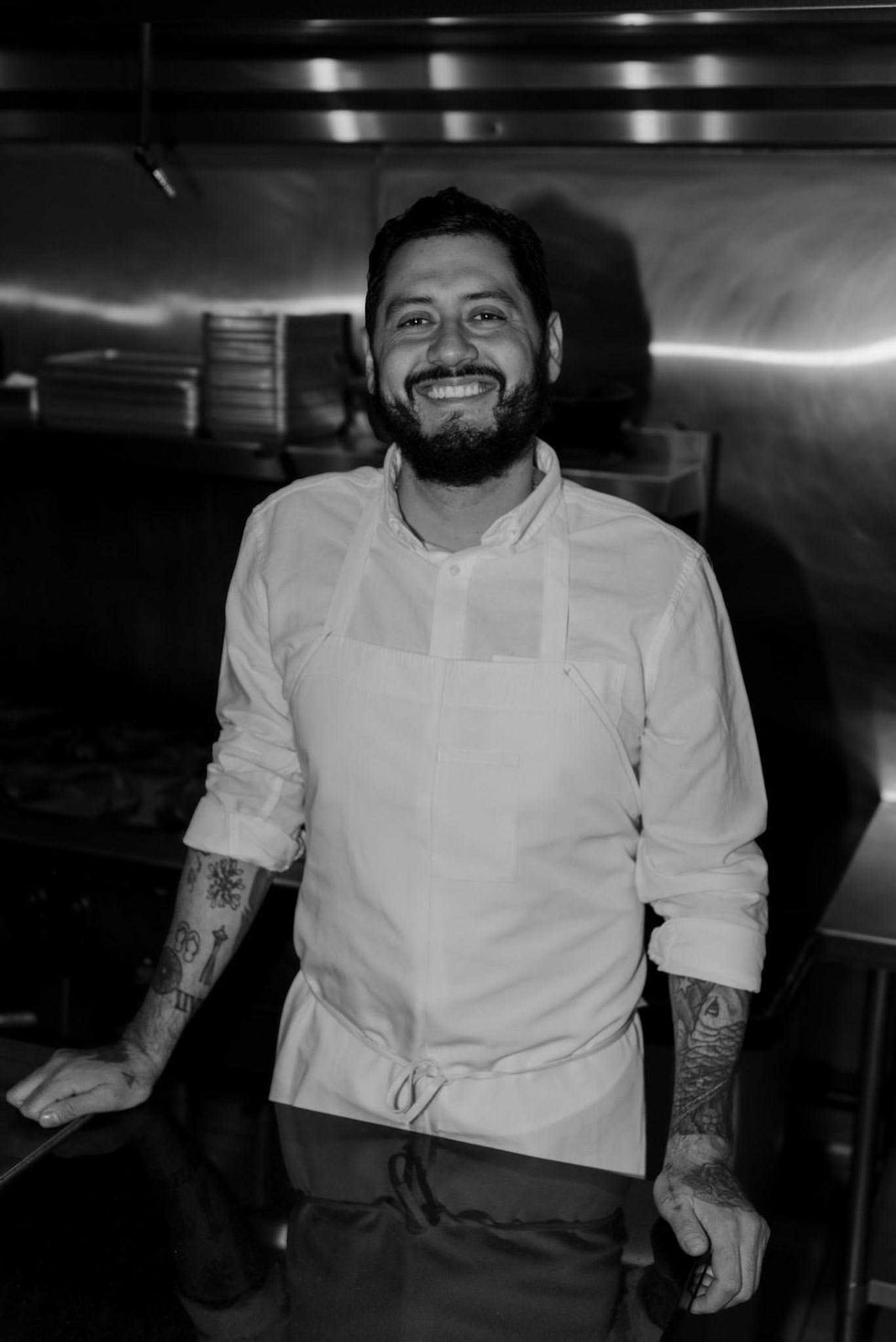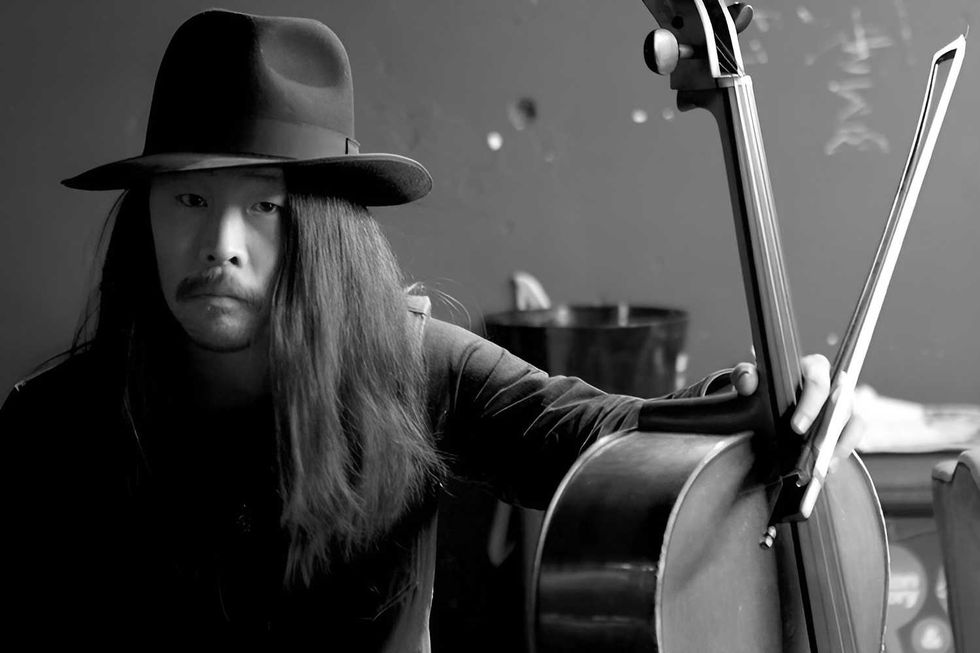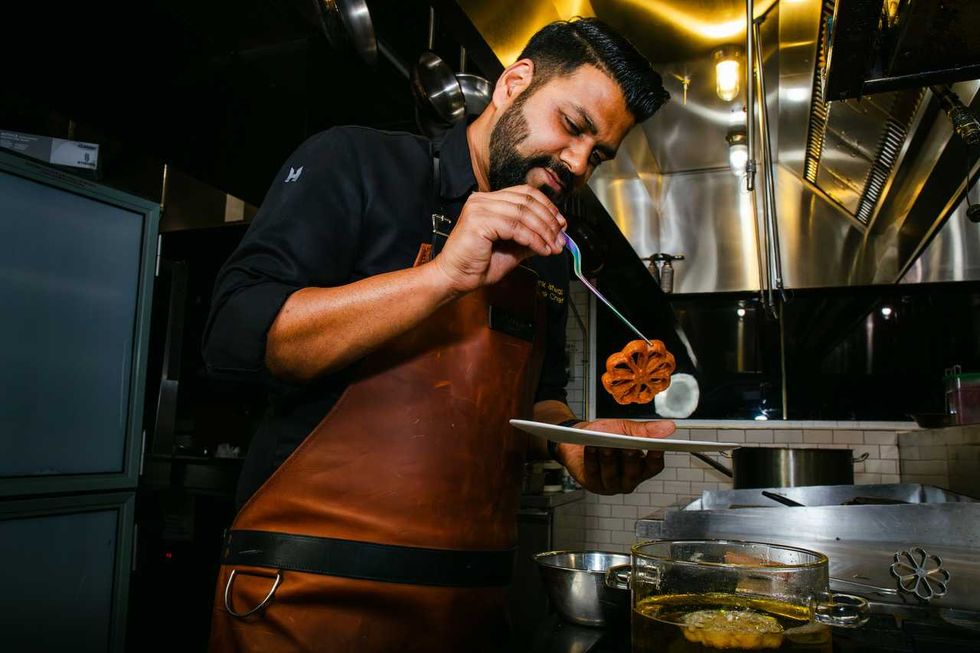Food for Thought
Killing it in the kitchen: The first restaurant jobs of some of Houston's mostfamous foodies
 Aisha WalianyPhoto by Marene Gustin
Aisha WalianyPhoto by Marene Gustin Ricardo MolinaPhoto by Jordan Chan
Ricardo MolinaPhoto by Jordan Chan Jason ChaneyPhoto by Roy Schneider
Jason ChaneyPhoto by Roy Schneider Vanessa O'Donnell
Vanessa O'Donnell Ryan HildebrandPhoto by Shannon O'Hara
Ryan HildebrandPhoto by Shannon O'Hara Randy RuckerRandy Rucker/Greens and Beans/Twitter
Randy RuckerRandy Rucker/Greens and Beans/Twitter Soren PedersenPhoto by Kimberly Park
Soren PedersenPhoto by Kimberly Park
How do you get to be a chef or restaurateur?
Some folks are born to it, like Aisha Waliany.
“I think my first job was filing at the family office,” she says. “Then when I was in high school I worked the cash register and the drive through at our first Arby’s in Clear Lake.”
Waliany’s family has owned fast food franchises in Houston for years. They sold off their Popeyes franchises about six years ago but still have several Arby’s and The Counter, the build-your-own burger joint on Washington Avenue, and its new sister location in The Woodlands.
“I was raised in the restaurant industry, and I always knew I would work in the family business,” she says. “My parents are my mentors.”
For Ricardo Molina, it wasn’t just his parents, but his grandparents who mentored him. For three generations Molina’s Cantinas have been dishing up great Tex-Mex from classic recipes. But that didn’t mean Molina got to start at the top; as a child he washed dishes in the restaurant.
“I don’t recall getting paid,” he says. “Probably we just got fed. But I did it so I could be with Dad, and it was the beginning of a career in a wonderful industry."
For Vanessa O’Donnell, set to open her third Ooh La La dessert boutique this fall, it’s always been about the sweet things in life.
“I was 19 or 20 when I started working as an unpaid intern at Candy Haven and Cakes in Denton, Texas,” O’Donnell says. “I was responsible for taking the cakes out of the pans, wrapping them, making boxes and cleaning. That’s where I learned to ice cakes, as well as write on them. It was a great experience and helped get me to where I am today.”
But for some, it really was about getting paid.
Randy Rucker — who’s blazed through several eateries in town and is about to open a new Museum District spot called Restaurant Conāt — once had a Kool-Aid stand as a kid. But he didn’t really work in the food industry until college, when he went to work at a bagel company.
“I needed a job that I thought was going to be an easy way to make money, but little did I know it was a lot of hard work with demanding hours and very little pay,” Rucker recalls. “Needless to say, I didn't last very long there after I realized that I had to be there at the butt crack of dawn to make the bagels.”
And how did that experience help him to become the James Beard-nominated chef he is today?
“I’m still trying to figure where I am today.”
And we’re anxiously waiting for your new restaurant.
Jason Chaney, executive chef of The Barbed Rose in Alvin, always knew he wanted to be a chef. At 15 he went to work in the Old Redwood Grill, working for free for six months cleaning the walk-in cooler, boiling potatoes or peeling shrimp.
“My original intentions were simply to be in the kitchen to observe what was happening; executive chef Shelly Drought felt otherwise. ‘If you’re going to be in the kitchen, then I'm going to put you to work.’ Sweeeeeeet.”
Chaney says that job set the bar for the rest of his career.
“I tell kids all the time, it’s always easier to go backwards than forwards. It’s always easier to work in a lower-end kitchen than it is to break into something finer than where you are currently. With that in mind, it just makes sense to always start and work in the nicest places you possibly can. Because of my first job, I’ve been able to maintain a certain level of high-end experience in my career. Plus, it gave me a heart for the kid who wants to be a chef one day and is willing to do what it takes to get there, even it means working for free.”
Chef Ryan Hildebrand, who’s set to open Trinity on South Shepherd Drive, got his start at the San Luis Hotel and Resort in Galveston working as a “General Banquet Bitch” for $6 an hour.
“It gave me the opportunity to work with one of the hardest working guys I've ever met, Lindell Mendoza,” Hildebrand says. “In the kitchen by 6 a.m. and out at 11 p.m. or later, but it never felt like it. It confirmed my desire to be in the kitchen and gave me a chance to see what it takes to live the life of a cook.”
Seems like every chef you talk to has a similar story of starting young and working hard. Being a chef is certainly no piece of cake.
Soren Pedersen, executive chef/partner at Sorrel Urban Bistro, started in his native Denmark as a 14-year-old dishwasher before being promoted to prep work and then a four-year apprenticeship.
“I just knew it was the future for me,” Pedersen says. “It showed me to respect the honesty in food and that dedication, passion and commitment is key for any success. Both I have used, still believe, and execute to this day.”
